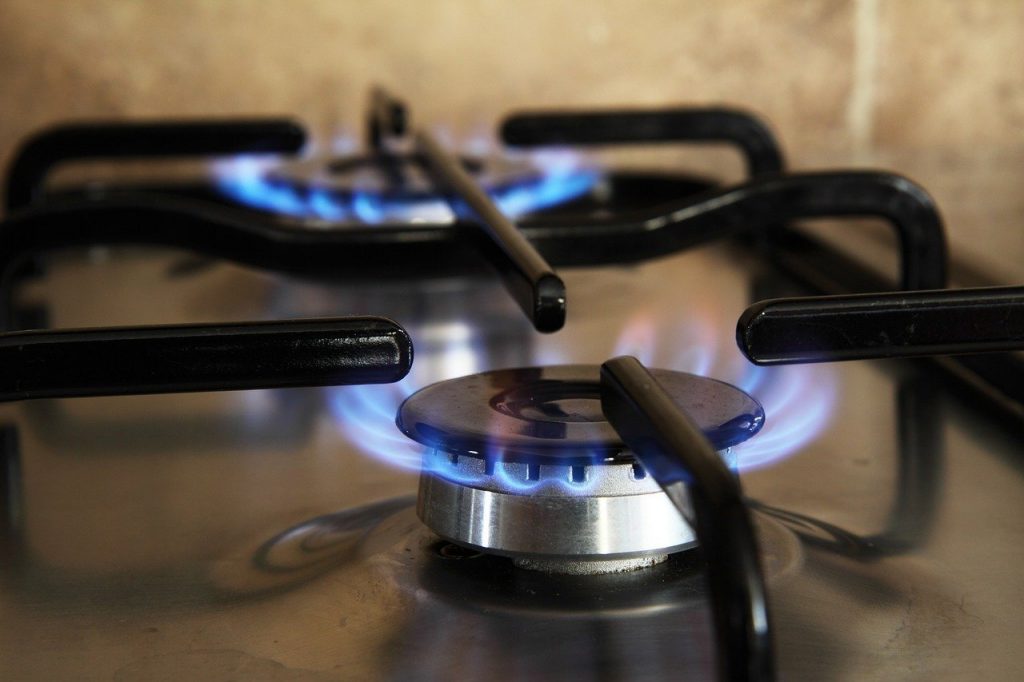Business Secretary Kwasi Kwarteng says the government is ready to step in to tackle the crisis on gas prices and shortage of carbon dioxide.

The move comes as smaller providers are forced out of business by the increase in wholesale gas costs.
Mr Kwarteng says that one option is to lend money to larger companies to help them take on additional customers. Another solution is for the government to subsidise the country’s largest carbon dioxide producer to build up supplies.
Carbon dioxide shortage
CF Industries stopped production at two UK plants because increasing gas costs made them unviable. The rise in costs comes as a result of increased demand due to cold weather in Europe and Asia.
The shortage in carbon dioxide is raising concerns over more disruption to grocery supplies, as the gas is vital to the frozen food industry. Many business are already facing supply chain issues because of driver shortages.
Mr Kwarteng has spoken to the chief executive of CF Industries on two occasions. They are looking at ways to make sure production will resume “as quickly as possible”. This includes subsidies. However, he is “averse” to the idea of nationalising the company, so this is not an option.
Meanwhile, Mr Kwarteng denies that the government will bail out failed energy companies. He says: “I do not think it’s the right thing for taxpayers’ money to be injected into companies that have been badly run”.
However, the government is exploring the possibility to lend bigger firms money to help them absorb costs involved in taking on new customers from those who have gone out of business. But under this policy, if it goes ahead, companies are expected to pay back any loans.
The energy price cap
Despite the rise in wholesale gas prices reaching record levels, limits will remain on how much energy firms can charge customers. The government and energy regulator Ofgem are insistent on this, dismissing any suggestions of lifting caps on energy prices. They say, keeping it is the “clear and agreed position”.
The energy price cap is there to protect customers on certain tariffs from sudden hikes in wholesale gas prices. It limits how much a company can charge consumers per unit of gas they use. The cap level, first introduced in January 2019, is set by Ofgem for summer and winter. It is based on energy supply costs.
Currently, around 15 million households in England, Scotland and Wales are covered by the price cap. Energy bills are due to rise in October, as a 12% increase in the energy price cap will partly cover the increased cost of wholesale prices. The current maximum cost is £1,138 a year for people on standard tariffs, rising to £1,277 next month.
The energy price cap applies to standard variable or default tariffs, which are typically the most expensive plans.
While the energy price cap is good news for consumers, it is bad for businesses. The cap means firms are not able to pass higher wholesale costs on to the customer. This is forcing smaller companies out of business.
Companies going bust
Industry sources worry that by the end of the year the number of energy suppliers could drop from 70 to just 10. Since January, four energy firms have collapsed, with another four predicted to follow suit in the coming days.
If their energy supplier goes bust, people will continue to receive gas and electricity, and the account will automatically move to another supplier. But there is no knowing whether this new tariff will cost more than the original deal with the former supplier.
Small firm, Utilita, will not take on any new customers because it cannot afford to buy extra gas supplies for them. Its chief executive, Bill Bullen, says that every 1,000 new customers equates to £250,000 extra costs per week. The government will end up spending billions of pounds on the crisis. Money which “would have been better spent on getting customers to reduce their energy consumption”.
A diverse range of energy sources
Meanwhile, opposition politicians say the problems “should have been foreseen”. And the crisis is proof that the UK government’s energy policy is “lamentable”.
The former Brexit Secretary, David Davis, warns there is a risk of a “cost of living crisis” for people such as “the plumber, the bricklayer, the lorry driver”. He advises Chancellor Rishi Sunak to “think hard about the ordinary family’s take-home pay and what they have to buy with it, because that will be a dictator of how people feel going in to the new year”.
However, Mr Kwarteng dismisses fears about energy shortages, saying people will always be able to light and heat their homes.
Ofgem also agrees that the UK does not have a problem with gas supply. This is because of a range of different sources “that can more than meet demand”.
Thank you for reading Gas prices crisis: Government poised to step in

Looking for additional living space or somewhere quiet to work from home? Look no further – Log cabins at affordable prices.